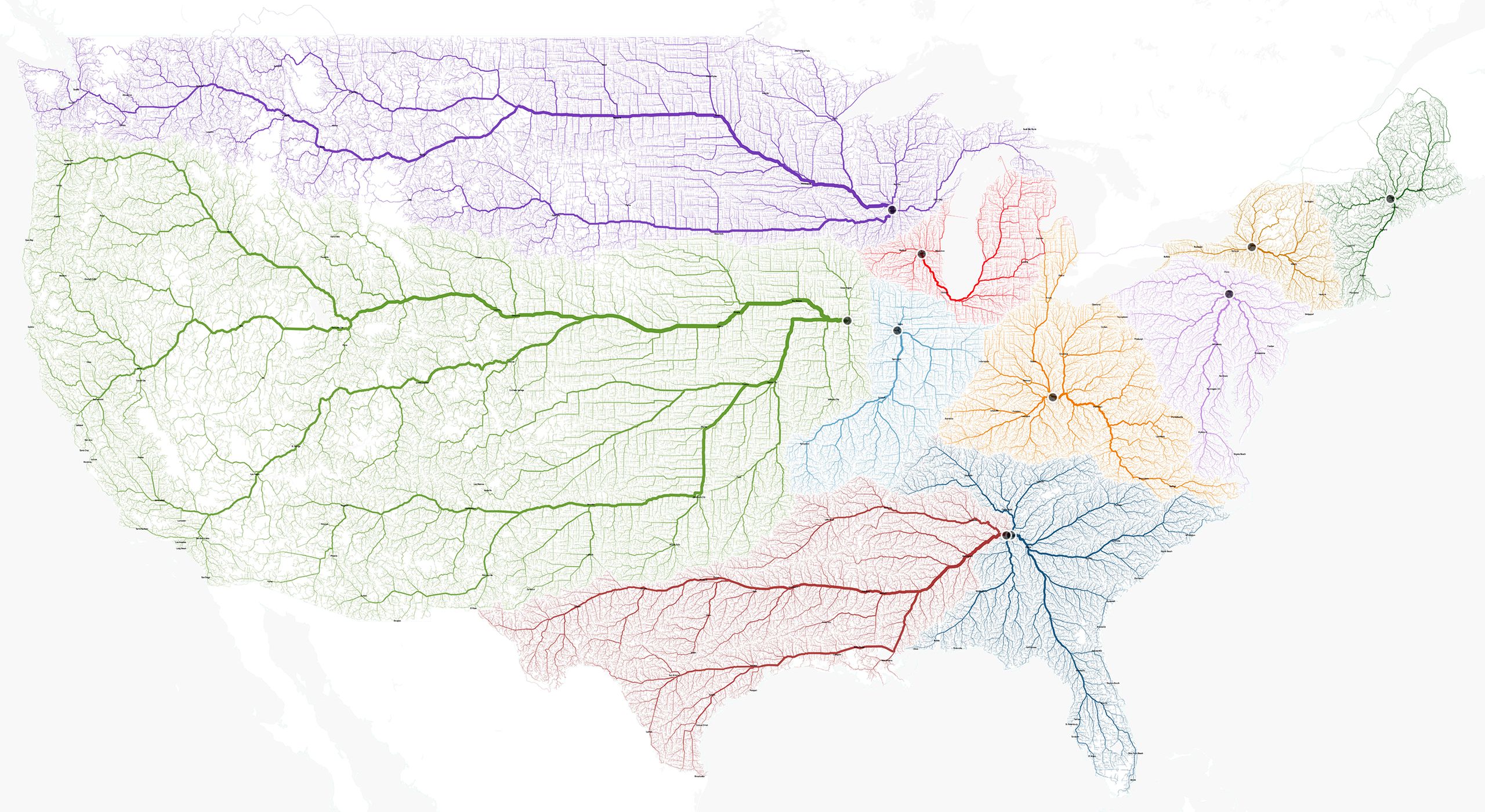12/08/2015-12/14/2015

All roads lead to Rome [1]. Thanks to Moovel Lab.
Mapping
- The usage of destination tag has continued to grow and it surpassed the exit_to tag – at least in the US.
- To increase transparency of logging activities in rainforest, the World Resources Institute and Moabi launched the Logging Roads Initiative to record logging roads in the Democratic Republic of Congo.
- Mapzen’s “Targeted Editing” this time is focussed on schools with the subtitle: “For schools, polygons are twice as nice!”
Community
- Joost Schouppe created a map to compare the GRB road data from AGIV with what is mapped in OSM. A short legend was posted in the Belgian mailing list.
- Mapper in the Spotlight: Lutz Lange, one of the brains behind “HistoricPlace” and the “Historic Place Map”.
- Marc Ducobu explains how the data of OSM and Urbis (Brussels) can be compared.
- The ruling on the appeal by the defendants in the case of Ulf Möller will be passed on 14.01.2016 at the Federal Court of Justice in Karlsruhe (Germany). The mapper, geocacher, developer at OpenSSL and other projects was killed in January 2012.
Imports
- Jonah Adkins would like to import buildings and addresses in Poquoson (Virginia).
- Borut Maricic would like to import water bodies in Upper Styria (Austria) . The necessary wiki page and discussion on the import list are still missing.
OpenStreetMap Foundation
- Rob Nickerson is leading the organisation of “the UK/GB OpenStreetMap group” meeting, which is to be held on the 17th of December .
- Richard Weait published the detailed board election results.
Events
- Since the 80s the Association of “Friends of the Gardens of La Oliva” has planted more than 300 trees (species from all over the world) in the common areas of the District of La Oliva in Sevilla. On Saturday, 19th December OSM mappers will help to map the unique species of this “public garden” of La Oliva. The aim is to create an online botanical atlas.
Humanitarian OSM
- User dekstop asks “Should we teach JOSM to first-time mapathon attendees?”.
Maps
- Andrew Harvey announces the bush walking site which uses OSM-data.
- Jonas, the co-maintainer of GNOME Maps, announces more features to GNOME 3.20, including basic editing of OSM, with “more to come”.
- “Roads to Rome” by Benedikt Groß, Philipp Schmitt and moovel Lab is a data viz project exploring one of the biggest unsolved quests of mobility: Do all roads really lead to Rome? 🙂 More details on how he redefined the territorial extents of the EU and US based on travel times are on the project page. The routing was done on the basis of OSM data and GraphHopper. To know what “roads to Rome” mean? visit here.
Open Data
- The municipality of SãoPaulo, the largest city in Latin America, announced on Twitter that the building cadastre is available within 30 days in Geosampa.
- Since Wednesday, December 09 2015, the South Tyrolean Open Data Portal is online. Many of the records are available under the CC-0.
- It is an old custom at least in Central Europe that children write a gift wish list before Christmas. If they behaved well, they may receive some gifts from their wish list. Stefan Keller from Hochschule Rapperswil wrote his wish list on twitter. Let’s hope, that he behaves well. 😉
Software
- QGIS started a Crowd funding project. The target of 32k € will be used to create a module to import CAD documents.
- Victor Olaya the main developer of QGIS processing framework describes in the latest developments in processing in a boundlessgeo blog.
- Releases
Software Version Release Date Comment iD 1.8.3 2015-12-11 Atlas 1.1.20 2015-12-13 Mapillaray for Android 1.68 2015-12-14 Mapillary for iOs 4.0.6 2015-12-09
Did you know …
- … that some have to pay for maps … (automatic translation).
- … the London centered Isochronic map from 1914 (via GeoCensos).
- … Maps Mania? Although the URL of the blog suggests something different, most map (styles) are still influenced by OSM. 😉
Other “geo” things
- You are looking for a new job?
Country City Who What Austria Vienna Autrian Institute of Technologies Scientist for Visual Analytics Germany Heidelberg Universität Heidelberg Wissenschaftliche(r) Mitarbeiter/-in Geoinformatik India Bangalore Mapbox Map Analyst India Bangalore Mapbox Map Designer India Bangalore Mapbox Designer and Front-end developer - A map which shows how different countries are prepared for climate change (automatic translation).
- Klaus Bechthold, founder of GPSies, talks in his blog altitude – GPSies seeks truth about how to understand the problem of calculation of heights and how GPSies does it (automatic translation).
- A strange title, but a nice an essay about maps.
Upcoming Events
| Where | What | Date | Country |
|---|---|---|---|
| teleconferencing, 8pm | GB/UK org forming conf call | 12/17/2015 | UK |
| in tutta Italia | La Notte dei Mappatori Viventi | 12/18/2015 | Italia |
| Bari | Scopriamo i luoghi della cultura con gli OpenData (Wikimedia Italia – OpenPuglia) | 12/18/2015 | Italia |
| Lyon | Missing Maps mapathon, Lyon | 12/18/2015 | France |
| Graz | Stammtisch Graz | 12/21/2015 | Austria |
| Taipei | OpenStreetMap Taipei Meetup, Mozilla Community Space | 12/28/2015 | Taiwan |
| Bremen | Bremer Mappertreffen | 12/28/2015 | Germany |
Note: If you like to see your
weeklyOSM is brought to you by …